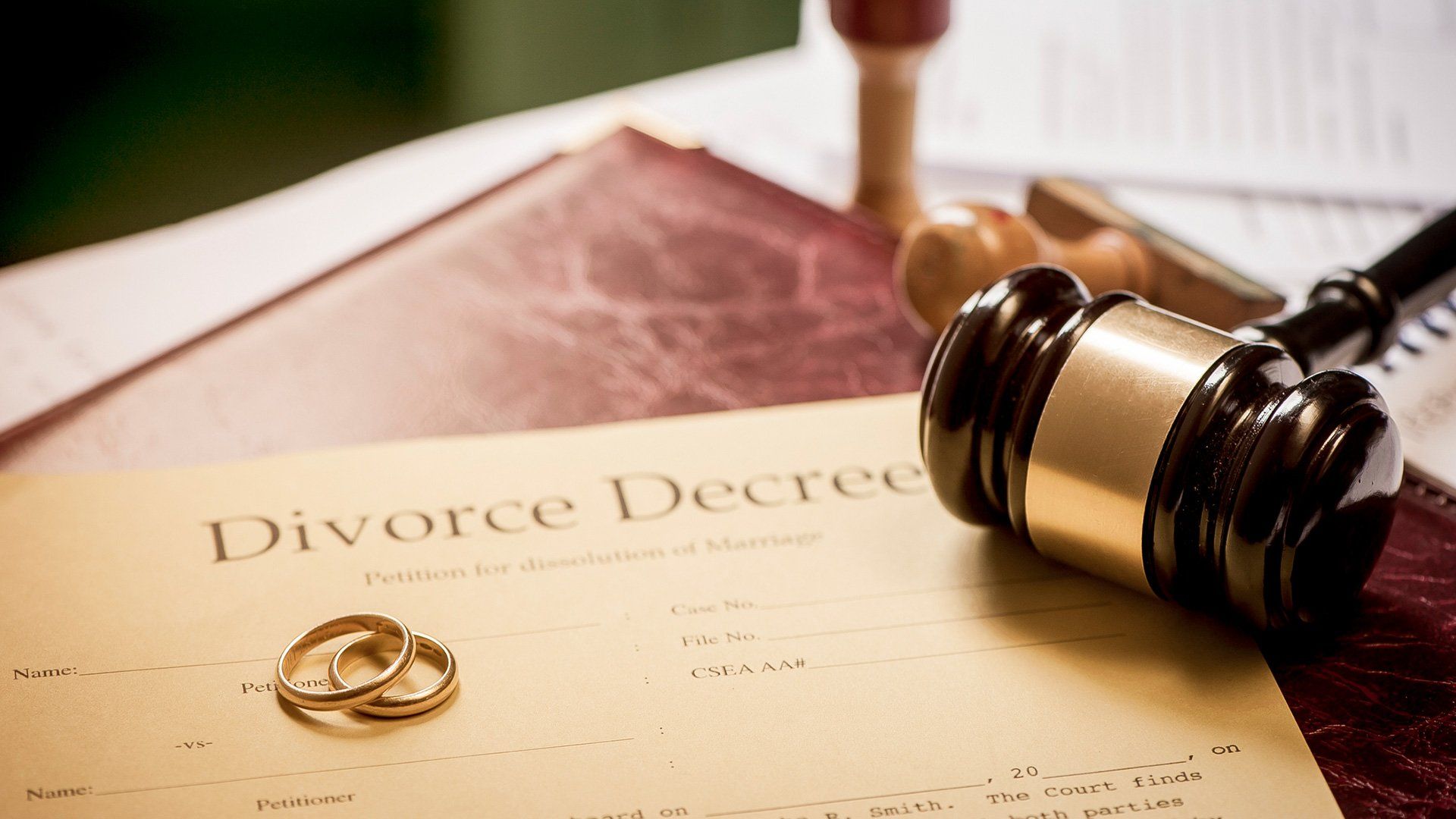Divorce Attorney Services for Wexford & Cranberry Township, PA, Canonsburg, PA, Greensburg, PA, Murrysville, And surrounding Areas
Divorce
Myers Law Group serves Cranberry Township, Canonsburg, Greensburg, Wexford, and the surrounding areas provides professional, experienced and cost-effective legal representation to help clients in Western Pennsylvania (Allegheny, Beaver, Butler, and Westmoreland counties, among others) traverse through the complex divorce process. Our family law attorneys have focused their entire career exclusively on the practice of family law and bring an in-depth knowledge, experience and expertise to each case.
complaint.
To file a divorce in Pennsylvania, at least one of the parties must be a bona fide resident of the state for at least 6 months prior to the filing of a divorce action. Depending on the date of separation and assuming both parties meet the residency requirement, a divorce may be filed in the county in which either party lives. However, before filing, an interested party should seek recommendations from legal counsel to determine where it is appropriate to file the divorce complaint.
In Pennsylvania, there are two types of divorces a spouse can choose to file, fault and no-fault based. No-fault based divorces are the most common and usually the most cost effective way to end a marriage. As it is not necessary to prove guilty or fault to obtain a divorce, a no-fault based divorce is usually the path chosen. Pennsylvania does still provide the option of filing a fault based divorce and there are situations in which fault based divorces are appropriate.
Annulments
In Pennsylvania, parties may choose to end a marriage through either an annulment or a divorce. While divorce is the most common, it is important to determine whether an annulment is an alternative option
Annulments are available in a very limited amount of circumstances. An annulment is a legal declaration that the marriage never existed, this differs from a divorce, which is a legal declaration that the marriage is over. There are two types of annulments, those that are “void” and those that are “voidable”.
A void annulment may be granted in situations such as:
- Where a party was married previously and entered into a new marriage without obtaining an annulment or divorce of the first marriage
- If the parties entering into marriage are related within the prohibited degrees of consanguinity
- If a party is unable to consent to the marriage due to insanity or serious mental disorder
- If either party to a purported common-law marriage was under the age of 18.
A voidable annulment may be granted in situations such as:
- If either party to the marriage was under 16 and court authorization was not obtained
- Where either party was 16 or 17 and did not have parental or court consent
- Where either party was under the influence of drugs or alcohol and the action is filed within 60 days following the ceremony
- Where a party is impotent and the other party was not aware prior to marriage
- Where a party was induced to be married by fraud, duress, coercion or force attributable to the other party and there has been no voluntary cohabitation following the knowledge of the fraud or after the fraud, duress, coercion or force has been removed.
Uncontested Divorce
An uncontested divorce is the least costly way to obtain a divorce decree. In a Pennsylvania uncontested divorce, both parties agree to the separation of their marital assets and debts as well as any alimony and have signed a settlement agreement reflecting this. The parties then must only follow the 90-day waiting period from the filing of their complaint to consent to the entry of the divorce decree. This process is the most cost effective because the parties, through their attorneys negotiate a reasonable settlement of all the outstanding issues and do not turn the control over to a judge.
No-Fault Divorce
It is appropriate for a party to file a no-fault divorce in Pennsylvania when the spouse filing for divorce is not pursuing a claim of fault against the other spouse. Some grounds for fault are desertion, adultery, bigamy, indignities, or endangerment. In a Pennsylvania no-fault divorce case, the parties do not have to suffer through the emotionally and financially costly process of testifying at a hearing for the judge or master to determine if either spouse was responsible for the demise of the marriage. Once the marital property and debt issues have been resolved, a Pennsylvania no-fault divorce can be finalized after a 90-day waiting period if both spouses sign their consent to the entry of the divorce decree or after the spouses have been separated for two years and either spouse seeks to finalize the divorce and marital property issues.
Fault Divorce
Pennsylvania recognizes certain grounds for fault based divorces. The court is given the authority to grant a divorce to the innocent and injured spouse if there is a finding that the other spouse has:
- Committed willful and malicious desertion and has not resided with the injured and innocent spouse, without reasonable cause, for one or more years
- Committed adultery
- Committed acts of cruel and barbarous treatment, endangering the life or health of the injured and innocent spouse
- Knowingly entered into the current marriage while a former marriage was not terminated through death, divorce, or legal annulment
- Been convicted of a crime and sentenced to imprisonment for two or more years
- Offered such indignities to the innocent and injured spouse as to render the spouse's condition intolerable and burdensome
There are some situations in which filing a fault based divorce may be ideal from a tactical stand point. The truth is, this is an expensive way to proceed that usually leads to an emotionally charged legal proceeding and often yields little benefit. The finding of fault is irrelevant for purposes of equitable distribution of marital property and plays a very limited role in support cases. As a result, most divorces are now filed under the no-fault ground.
Equitable Distribution
Equitable distribution describes the process in which marital assets and debts are divided during divorce proceedings. It is important to note that not all assets and debts are considered marital. Assets and debts acquired prior to entering into the marriage, if spouses cannot agree on the division of their marital assets and debts, the decision will be turned over to the court. Depending on the situation, it may be more beneficial to attempt an out of court negotiation to distribute the assets and debts.
Pennsylvania is an equitable distribution state and not a community property state; as a result, the courts divide marital assets and debts on the basis of what it believes to be fair using principles of equity. This does not mean that the court will divide assets and debts on an equal basis. In Pennsylvania, the courts use a variety of factors to determine equity. These factors are not weighed equally. This allows the court to consider the financial situation of both spouses with flexibility; however, it makes predicting the outcome of the equitable distribution process much more difficult. Some of the factors the court may consider during equitable distribution include: length of marriage, previous marriages, non-marital assets, health, age, income, contribution to increased earning potential of the other party, standard of living, tax consequences of any award, and custody of minor children. It is important to note that fault of a spouse for the demise of the marriage is not considered in the equitable distribution process.
Marriage Settlement Agreements
As a result of the uncertainty of the equitable distribution process, many parties will successfully negotiate a settlement of the outstanding issues. If they are able to come to an agreement on things such as property division, spousal support, and custody either between themselves or with the help of an attorney, the parties can memorialize the agreement in a marriage settlement agreement. A marriage settlement agreement is a contract between the spouses that divides the marital estate and resolves other divorce related issues. Once signed, a marriage settlement agreement is a legal document that can be enforced should a spouse fail to comply with the terms of the agreement. It is possible to set aside or have the court modify a marriage settlement agreement; however this is available in only a few circumstances. It should be noted however, that child support and custody are generally subject to modification.
If you have additional questions or would like to set up an initial consultation at Myers Law Group, LLC, call 724-778-8800 or email jeffrey@jpmyerslaw.com.





